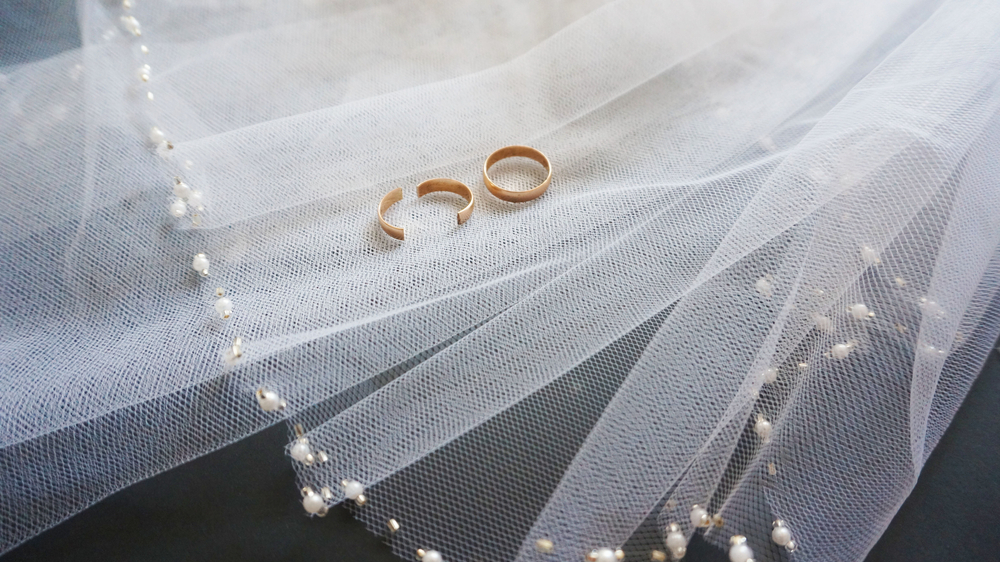A Month Before the Wedding - The Groom Suffered Complete Paralysis: A Revealing and Shocking Interview
What does a young bride do when a month and a half before the wedding, the groom is diagnosed with a bacterium that causes complete paralysis? Michal Schwartz (pseudonym) shares a revealing and shocking interview about the difficult period, the heartbreak, and the renewal.
 (Photo: shutterstock)
(Photo: shutterstock)"About a month and a half before our daughter Shira's wedding, we received a call from our in-laws that the groom was not feeling well and was undergoing tests," Michal begins her shocking story. "At first, we thought it was something quite ordinary, maybe unfamiliar, and that it would pass. But as another day, another week passed, we began to realize the wedding could not be held on the date we had set."
"We had a very loving and warm relationship with the in-laws, and they shared everything with us. We had a wonderful relationship. The day when the wedding was supposed to take place was a very hard day, for us and for them."
How did the bride feel during this entire period, when you didn't yet know how serious the situation was?
"Initially, we were all very hopeful that he would recover and everything would be fine. But later, we realized it wasn't going to happen. Then, my daughter, the bride, began a very tough phase. I was the strong one in the story, but she, on the other hand, was utterly broken. During that time, I was studying family and marital counseling, and the tools I received helped me a lot. I asked her: 'Shira, how can I help you?' But nothing interested her. She's a very smart and opinionated girl, yet she was simply 'down'."
 (Photo: shutterstock)
(Photo: shutterstock)"Back then, I suggested she go see him in the hospital, even though we are Hasidim and it's not customary for us to meet between the engagement and the wedding. I did it on my own accord, feeling that this was something 'out of the ordinary', but our situation was not 'ordinary'. Initially, we visited him when he was hospitalized, always with us, the parents. Once he moved to rehabilitation, we visited him again and gave them a few minutes to be alone together. That's how we accompanied them, with immense hope that he would recover and return to normal, and everything would be fine. That hope kept me going through days of tremendous pain."
Did the thought occur to you to "break" the engagement? Maybe it wasn't suitable?
"It was a pain that was very hard to bear, but I never thought in the direction of leaving the engagement. But when I consulted with my course mentor, she told me 'ask her (the bride, E.W.) if she's considering such a step'. So, I asked her and she said 'no'. We continued like that for some time, with many upheavals, sometimes the situation improving, sometimes getting worse, and throughout that time, we remained in phone contact with the boy's parents."
"During that period, we also continued with the traditional gifts given to the groom and bride. During Chanukah, we gave him a menorah, with great hope that it was a matter of time and things would settle. On Tu Bishvat, when we organized a designed and beautiful gift for him, Shira suddenly says to me: 'Don't you understand that I'm fed up with all these gifts and designs? I'm fed up!'"
The Surprising Instruction from the Rebbe
"One day, we received a call from his parents that our Rebbe told them to leave the engagement. We were in complete shock. When I say we were in shock, I mean me and my husband. In contrast, Shira, the bride, was at a point where she told me: 'Understand, dear, it wasn't mine, it wasn't mine!' So, we really started with ending the engagement. We asked them for a letter of apology and forgiveness for leaving the engagement, but they told us 'You don't need a letter of apology, we are asking to leave the engagement, not you. We received an instruction from the Rebbe to leave you, not you us.' But still, they gave us a letter to keep us calm. It is an especially wonderful family because, for us, it felt like we were leaving him because he was sick, and that was a very difficult feeling. My husband and the groom's father met and returned each other's mutual gifts, as that was what needed to be done. You could say we parted with very, very great friendship."
And how did Shira feel about this whole story? Was she at peace with this step?
"For Shira, he was not hers. Suddenly, this understanding came to her. When we went to the Rebbe, he said that usually, he doesn't officiate or instruct leaving an engagement, but in our case, he thinks it was the right thing to do because it wasn't ours. Since then, she went with this understanding that it wasn't hers, and with Hashem's help, she would find her match. That's how she recovered. Unlike her, I couldn't lift myself out of bed, I was so down at that time, I received it very hard. But after a while, I realized I should have been happy because I wasn't able to do this process on my own initiative, and so things unfolded that the breakup came from the groom's family."
 (Photo: shutterstock)
(Photo: shutterstock)"Despite everything, we continued to stay in phone contact with them, and after a period, we asked them what from all the shared things we had together they wanted for themselves. They asked for the photo album. It was a stunning digital album that my daughter designed herself, and she wanted to keep it with her. We told her: 'Look Shira, this is the only thing they have left, the memories. With Hashem's help, you'll move on and build a new home and a new life, they only have this to hold on to.' We really gave them the album, yet they wanted to continue being in touch with us. I then consulted with my advisor who told me, 'Give them everything you can because that's the little you can give them.'"
"I remember at that time there was a wedding of our friends, who were also neighbors of the former in-laws, and they really asked us to come to the wedding and bring Shira with us. It was already about a month and a half after we broke up, and we felt we needed to move on, disconnect, and start thinking about something else. I remember entering the hall looking for our former groom's mother. I arrived really late and felt like I was looking for something I didn't want to find... I didn't know how to 'handle' this situation, it was so embarrassing to meet her on one hand, and I felt so sorry for her on the other. But we did it because she wanted to, and we talked, knowing it was probably the last time, and we needed to disconnect."
Starting Anew
So did you start a new matchmaking process?
"Yes, Shira really was relatively very young, but the new matchmaking process was very exhausting because they suggested to us all sorts of unsuitable matches... Then Shira says to me: 'Tell me dear, what did I do wrong that now I'm getting all these weird suggestions? Before, I was a talented, successful, and good girl, and I remained one. What did I do wrong that this happened to me?' But these are the conventions of our society, that a girl who leaves an engagement gets 'lesser' offers. It was a difficult period we went through, those who knew - knew and understood, but the reality didn't change. After a while, with Hashem's help, we received a matrimonial proposal that ostensibly we wouldn't have initially gone for, an excellent young man. We proceeded with the match, and near the end, we shared with the previous in-laws because we didn't want them to hear 'from others' that she got engaged. I talked to the mother, who during the conversation told her son: 'You hear Yossi, (the former groom, E.W.) Shira is being proposed to by Chaim Eckstein,' then he tells her, 'I know him, he's a good guy.' I thought to myself, how can one even absorb this, that he comes and says, 'Yes, he's a good guy?'"
"After the last meeting, where Shira came out feeling very good, we decided to finalize it the next day. Suddenly Shira says to me 'I’m not getting engaged!' I vividly remember the corner of the house I stood in at that moment, and I say to myself: 'What do I tell her now?', then I asked her: 'Shira, do you have a problem with this match?' She says to me: 'No'. 'So what is it?' I ask her, then she tells me: 'I can't get engaged before Yossi gets engaged.' I told her: 'You kept saying he's not yours, he's not for you. Now Hashem has given him such a path, and you another one, and didn't connect you. So why leave yourself dependent on him!?' Shira is a very opinionated girl, she listened to me and said: 'But I'm not happy'. I told her: 'Shira, do you expect to get engaged the second time and be happy like the first time? There's no such thing! Which of your friends got engaged a second time? What you feel right now is the great pain that this happened, and he's stuck with the paralysis and you're moving on with your life. It's a very painful place, but that's what Hashem wanted for you and that's what Hashem wanted for him. That scar will remain, but it will slowly fade. Right now you feel both joy and pain, but slowly joy will replace the pain and keep it far away.'"
"She really listened, took it in, and the match was closed. It was truly so, from a place of joy, but with the pain."
And how did the period up until the wedding go? Were there any setbacks?
"Here too, we really had a miracle. Our custom is to wait between the engagement and the wedding for 9 months and sometimes even a year. We left the first engagement in the month of Adar, and the second engagement was in the month of Tammuz. By the Rebbe's instruction, we understood that it was not good to wait, and she got married in Elul. It really suited the new in-laws as well. So, we entered the wedding preparations anew and did everything again, even took the wedding dress from a different place. With Hashem's help, she married and received a wonderful husband, and even in this, we saw Divine providence because initially, we might not have been willing to hear about this match, but because Hashem wanted to pair them, he activated this whole story with the previous groom so we would be ready to accept this match. Today, they already have four children and a wonderful home."
What do you think was the thing that most gave you strength to get through this difficult period?
"I remember the immense pain I carried throughout this period, but on the other hand, I had to lift myself and continue to manage the household and live life even though it hurt so much. I constantly told myself: 'From Hashem, this has come about; it is wondrous in our eyes.' I don't know why we were led into this story, but this is what Hashem wanted for us, and we will accept it with love. That's what gave me strength. I was always playing the song for myself of: 'From Hashem, this has come about; it is wondrous in our eyes,' that's where I drew strength. It was also astounding to see that when I fell, my husband lifted, when he fell, I lifted, we supported each other, and strengthened Shira, our daughter, and she us."
Do you have any message you would like to pass on to people dealing with something like this or other issues?
"Definitely," Michal says, "it's understanding that there are things that are beyond our comprehension and knowing that we are small and there is Hashem who rules the world, and He doesn't need to explain to us why and how much, He doesn't owe us anything, we owe Him. And if we want to be 'great', then we should know we are small, that is our greatness. This reliance without understanding why is what gives the strength."

